എബോള
ഭീതി ആഫ്രിക്കയ്ക്ക് പുറത്തേക്കും പകരുകയാണ്. ഗള്ഫിലെ മെഴ്സിന് ശേഷം
മരണത്തിന്റെ പര്യായം പോലെ ആഫ്രിക്കയിലെ എബോള. എബോള ഭീഷണി ആഗോള ആരോഗ്യ
അടിയന്തരാവസ്ഥയായി ലോകാരോഗ്യസംഘടന (ഡബ്ല്യു.എച്ച്.ഒ)
പ്രഖ്യാപിച്ചിരിക്കുന്നു. ഇന്ത്യയിലേക്ക് രോഗം പടരുമെന്ന ആശങ്ക
നിലനില്ക്കുന്നുണ്ട്. ലോകത്ത് എല്ലായിടത്തും ആളുകള് വന്ഭീതിയോടെയാണ്
എബോള വൈറസിന്റെ വരവിനെ കാണുന്നത്. 'കറുത്ത മരണ'മെന്ന് വിളിപ്പേരുള്ള
പ്ലേഗായിരിക്കണം, ഇതിന് മുമ്പ് ലോകത്ത് ഇത്ര കടുത്ത ഭീതി പടര്ത്തിയ
മഹാമാരി. എബോള ബാധിച്ചാല് 90 ശതമാനമാണ് മരണസാധ്യത. ഒരു മരുന്നും ഇതുവരെ ഈ
രോഗത്തിന് കണ്ടുപിടിക്കപ്പെട്ടിട്ടില്ല. രോഗകാരിയായ വൈറസിനെ
വഹിക്കുന്നത് വവ്വാലുകള് അടക്കമുള്ള ജീവികളാണെന്ന് കരുതുന്നുണ്ടെങ്കിലും,
അത് കൃത്യമായി മനസിലാക്കാന് ശാസ്ത്രലോകത്തിന് കഴിഞ്ഞിട്ടില്ല. വായുവിലൂടെ
പോലും പടരാമെന്ന് കരുതുന്ന ഈ പകര്ച്ചവ്യാധി കടുത്ത വെല്ലുവിളിയാകുന്നത്
അതുകൊണ്ടാണ്. എബോള വൈറസ് ബാധിച്ച് ഇതുവരെ 3500 പേര്
മരിച്ചിട്ടുണ്ടെന്നാണ് ലോകാരോഗ്യ സംഘടനയുടെ കണക്ക്. പല ദിക്കുകളില്
നിന്നുള്ള എബോള ജാഗ്രതക്കാഴ്ചകള്
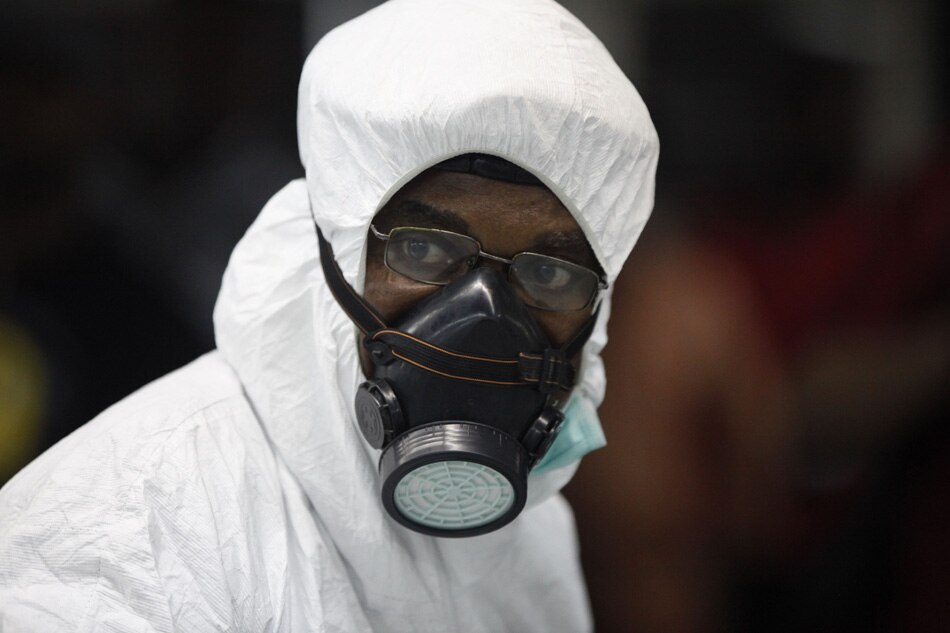
|
| A Nigerian port health official wears protective gear at the arrivals hall of Murtala Muhammed International Airport in Lagos, Nigeria, Wednesday Aug. 6, 2014. |
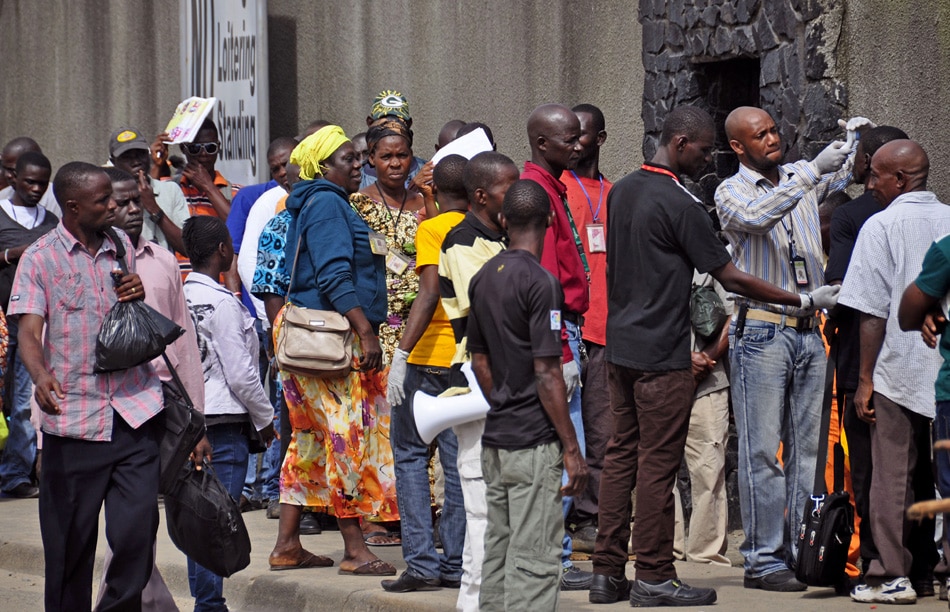
|
| Workers have their temperature taken before entering the Freeport area, an important commercial port facility, Monrovia, Liberia, Monday, Aug. 11, 2014. Experts say fear and misunderstanding of Ebola have led many to ignore medical advice, fueling the disease's spread. (AP Photo/Abbas Dulleh) |
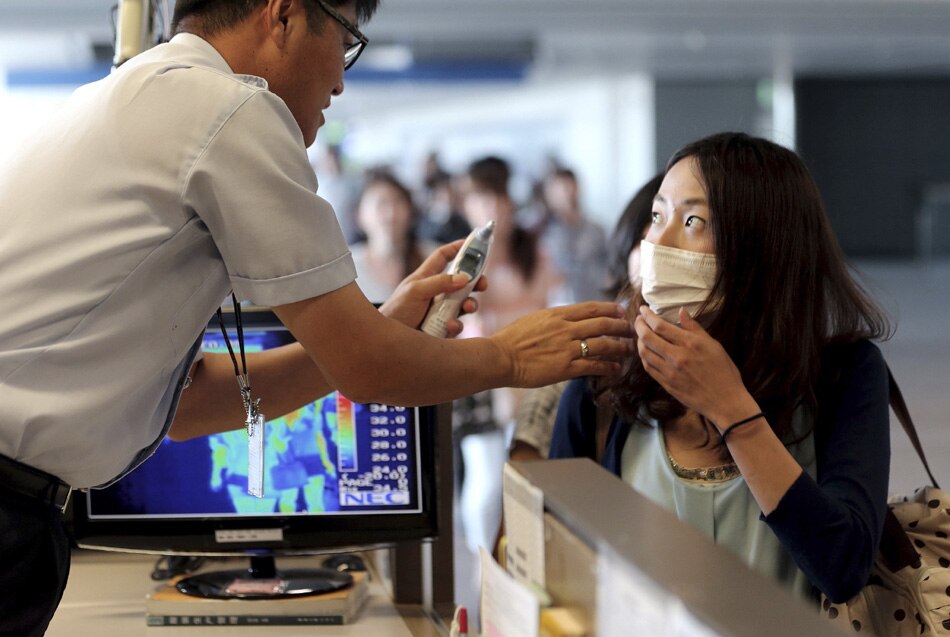
|
| A South Korean quarantine officer, left, checks body temperature of a passenger against possible infections of Ebola virus at the Incheon International Airport in Incheon, South Korea, Friday, Aug. 8, 2014. |
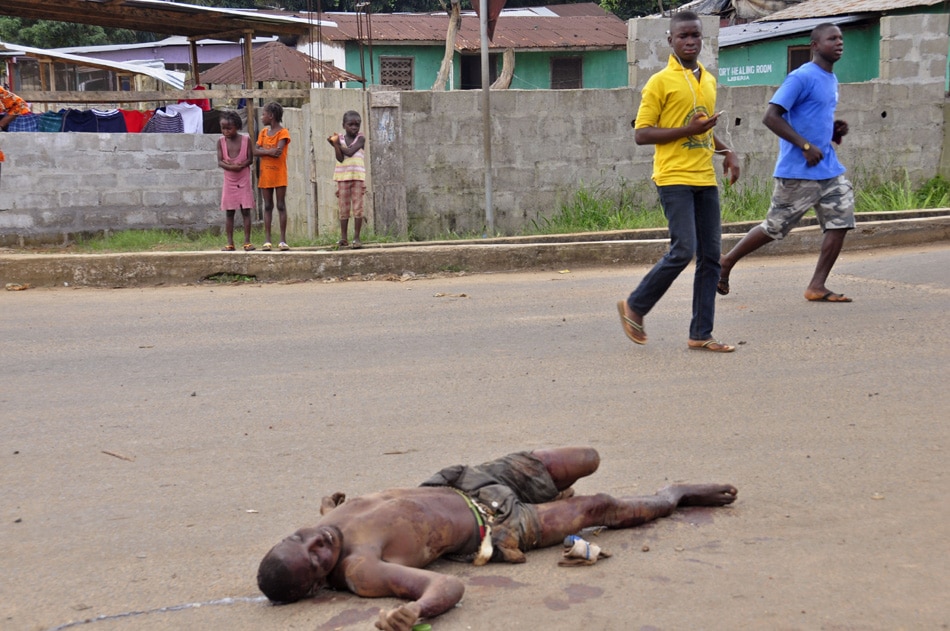
|
| The lifeless body of a man lays unattended in the street as locals suspect him of dying from the deadly Ebola virus, as government warns the public not to leave Ebola victims in the streets in the city of Monrovia, Liberia, Tuesday, Aug. 5, 2014. A second American aid worker infected with Ebola arrived Tuesday in Atlanta, where doctors will closely monitor the effect of an experimental drug she agreed to take even though its safety was never tested on humans. Nancy Writebol arrived from Monrovia, Liberia, in a chartered plane at Dobbins Air Reserve Base and will join Dr. Kent Brantly in the isolation unit at Emory University Hospital, just downhill from the U.S. Centers for Disease Control and Prevention. (AP Photo/Abbas Dulleh) |
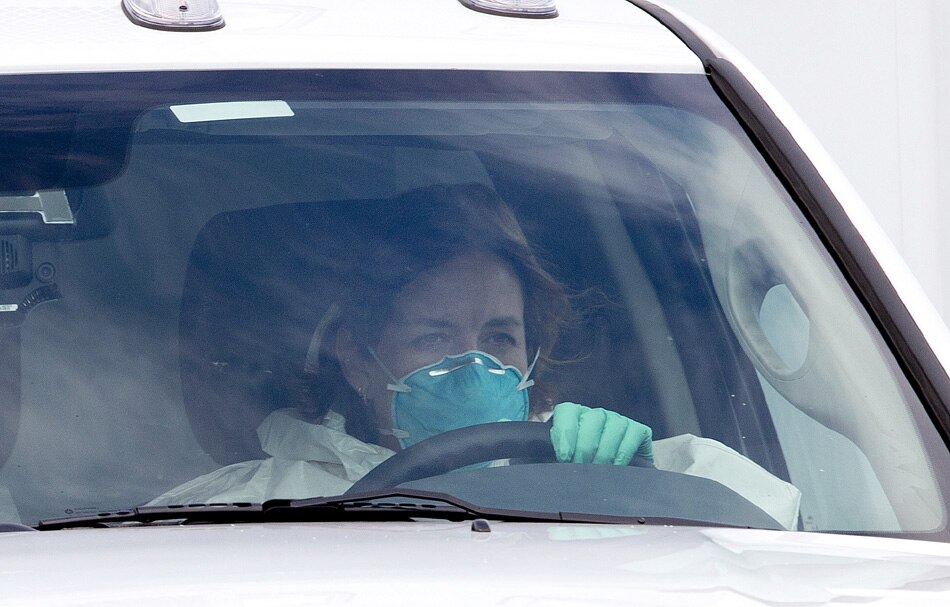
|
| A woman in protective clothing drives an ambulance after departing Dobbins Air Reserve Base in Marietta., Ga., en route Emory University Hospital in Atlanta Saturday, Aug. 2, 2014. |
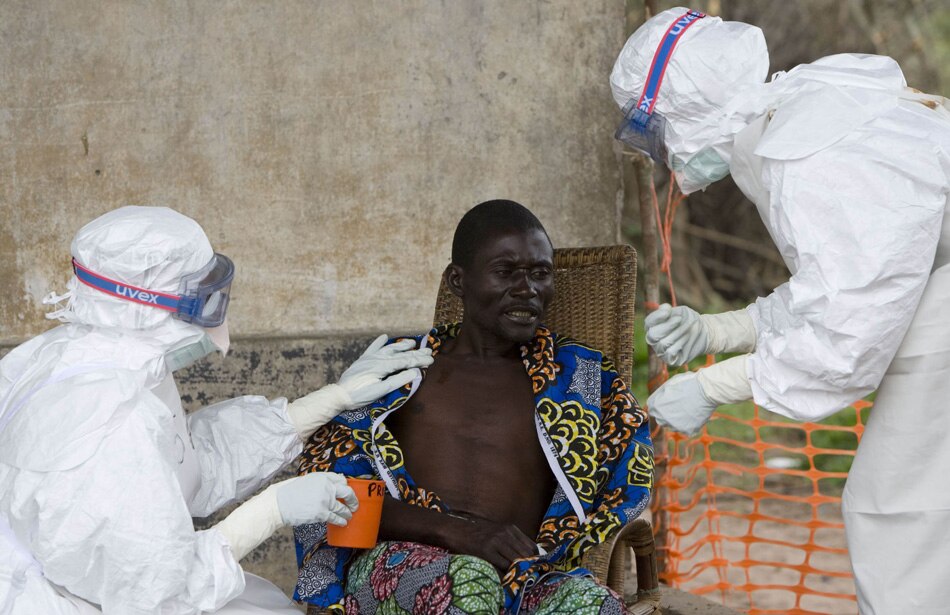
|
| A 43 year old Congolese patient, , who has been confirmed to have Ebola hemorrhagic fever, following laboratory tests, is comforted by Medecins Sans Frontieres (Doctors without Borders) nurse Isabel Grovas, left, and Doctor Hilde Declerck, right, in Kampungu, Kasai Occidental province, Congo. In the four decades since the Ebola virus was first identified in Africa, treatment hasn't changed much. |

|
| A woman prays with others from different religious groups against the spread of the Ebola virus in Monrovia, Liberia, Saturday Aug. 2, 2014. |
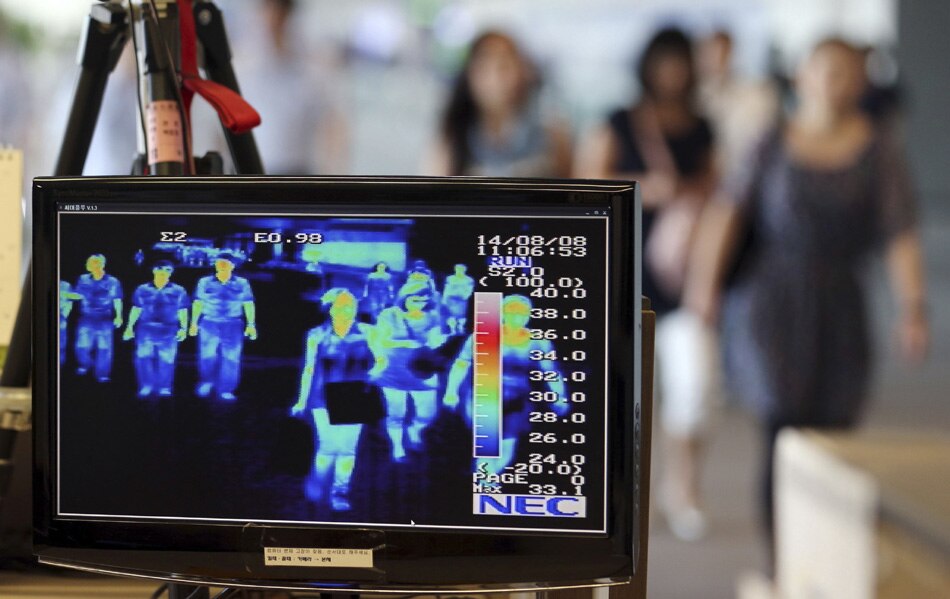
|
| A thermal camera monitor shows the body temperature of passengers arriving from overseas against possible infections of Ebola virus at the Incheon International Airport in Incheon, South Korea, Friday, Aug. 8, 2014. |
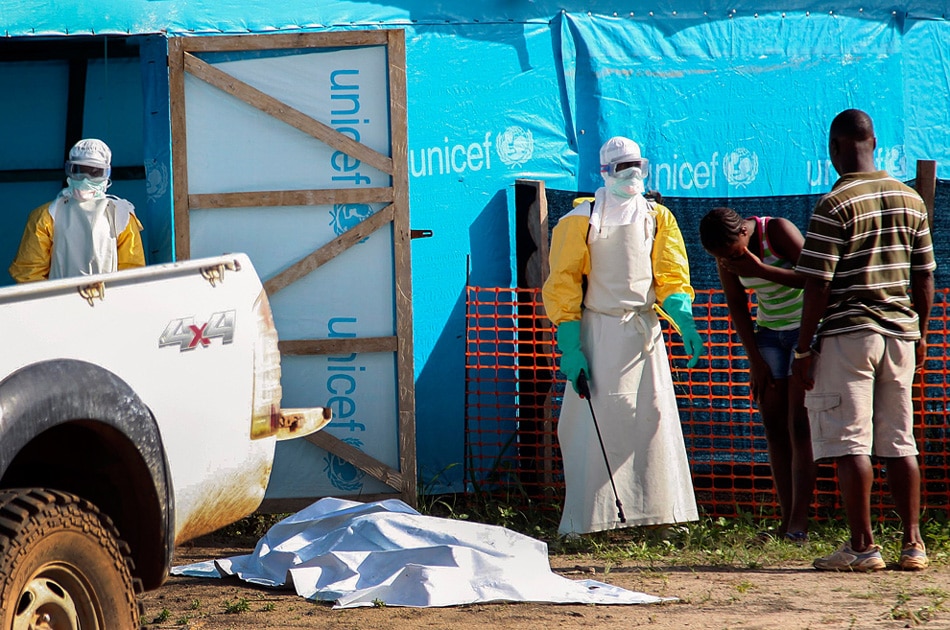
|
| The Liberian daughter of a woman that died of Ebola is in tears as her mother is taken for burial from the isolation unit in Foya, Lofa County, Liberia July 2, 2014. |
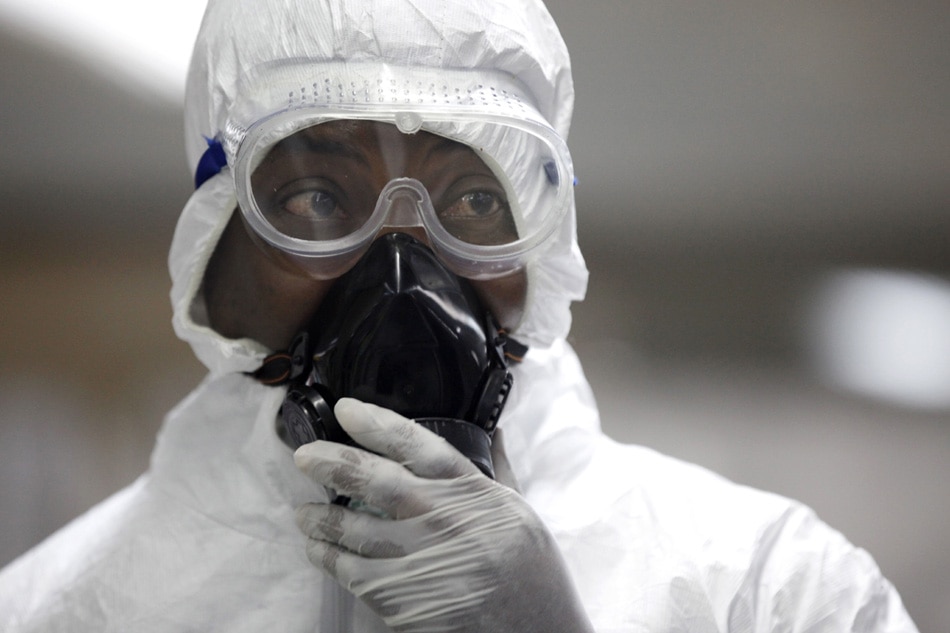
|
| A Nigerian health official wearing a protective suit waits to screen passengers at the arrivals hall of Murtala Muhammed International Airport in Lagos, Nigeria, Monday, Aug. 4, 2014. |
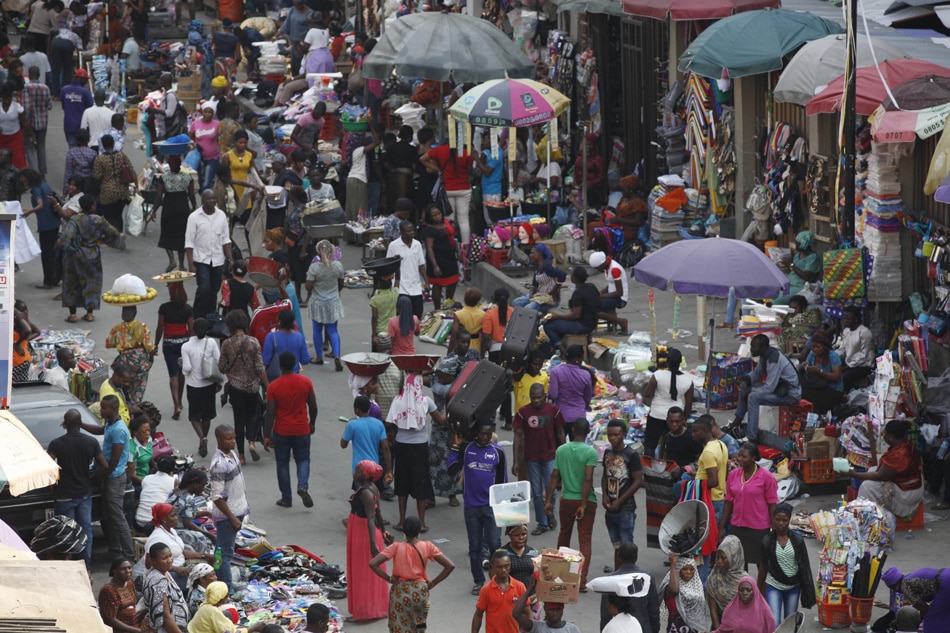
|
| Pedestrians shop for wares in a Market in Lagos, Nigeria, Thursday, Aug. 7, 2014. Authorities in West African are battling to contain the spread of Ebola but will have to wait for months until a potentially life-saving experimental drug known as ZMapp, which was used on two Americans infected with the dreaded disease, could be produced for use in Africa. (AP Photo/Sunday Alamba) |
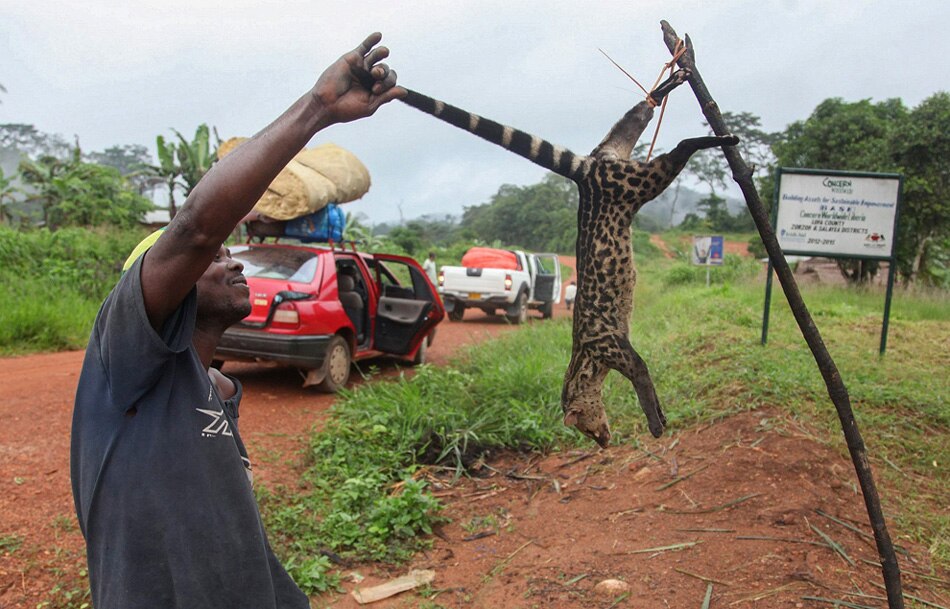
|
| A Liberian man holds a Civet being sold on a roadside as bush meat in Lofa County, Liberia 03 July 2014. Bush meat is one of the major carriers of the Ebola virus. The Liberian government and International partners have warned people to not eat bush meat. |
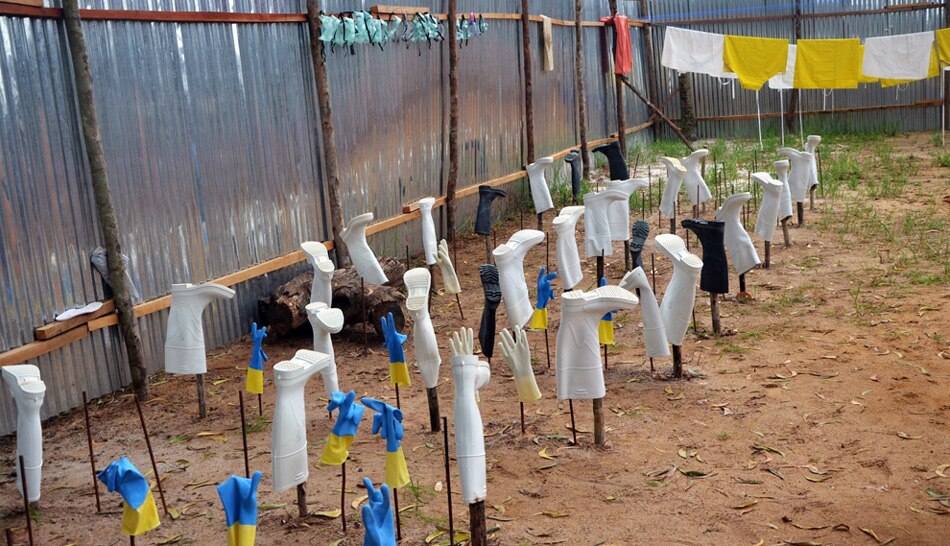
|
| Protective gear including boots, gloves, masks and suits, drying after being used in a treatment room in the ELWA hospital in the Liberian capital Monrovia on July 24 |
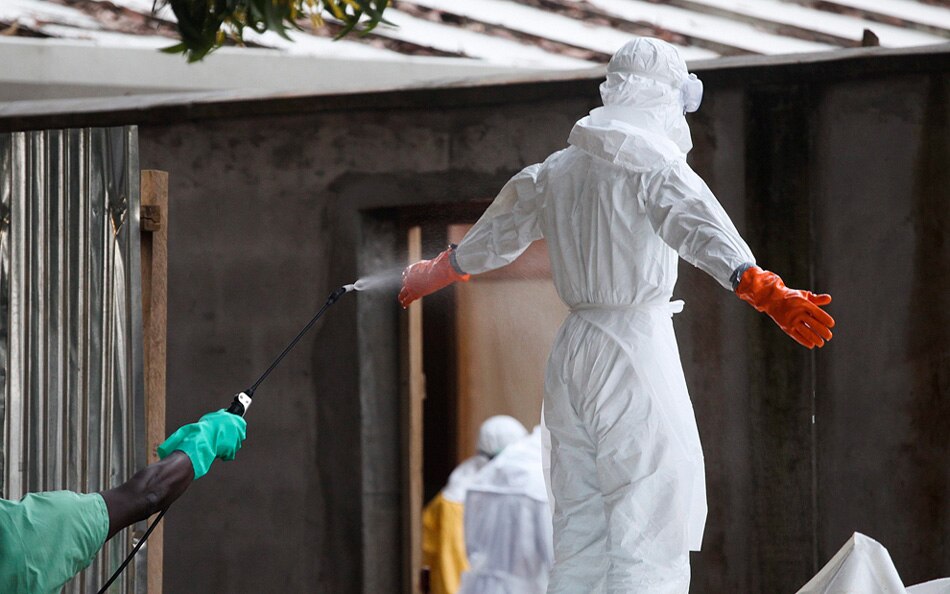
|
| A Liberian nurse is being sprayed with disinfectant after preparing several bodies of victims of Ebola for burial on August 1, 2014. |
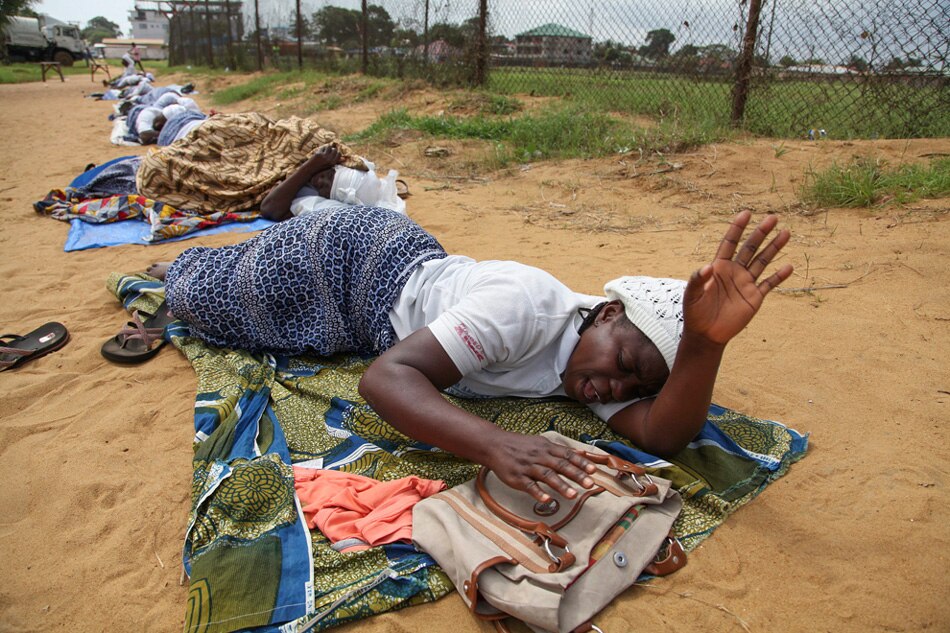
|
| Liberian members of the Women of Peace Building Network in Monrovia, Liberia, August 4, 2014 as they observe two weeks of fasting and praying for God's intervention in eradicating the deadly Ebola virus. According to statistics from the United Nations, 887 people have died from the Ebola outbreak, making it the worst ever in history. The Liberian government has ordered that the bodies of people killed by the Ebola virus must be cremated following strong reactions from communities objecting against the burial of Ebola victims in their areas |
No comments:
Post a Comment